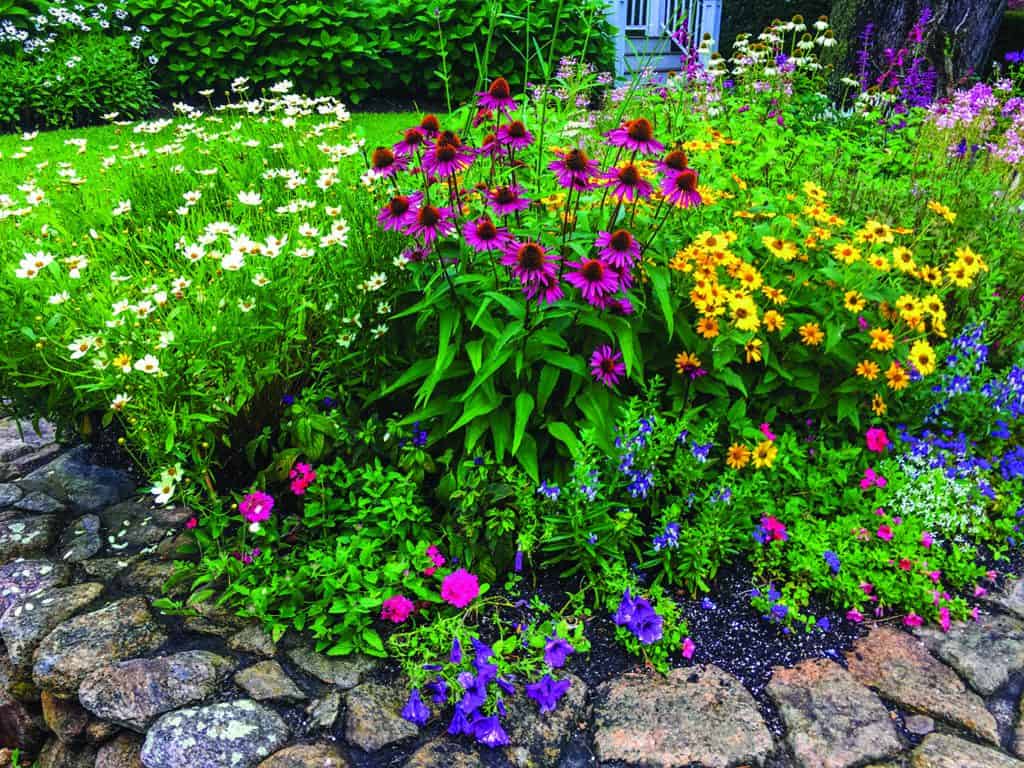
With more people staying closer to home this summer, due to concerns over the coronavirus and Covid-19, interest in gardening has surged. But with this come questions about personal safety, especially for gardeners sharing space with neighbors and friends and through community gardens.
Dr. Omar Oyarzabal, University of Vermont (UVM) Extension food safety specialist, and Beret Halverson, UVM Extension Master Gardener Program director, have teamed up to answer some commonly asked questions about gardening during Covid-19.
Q: What safety precautions should gardeners in community and neighborhood gardens take?
A: Practice physical distancing by staying 6 feet apart and limiting the number of gardeners allowed at the site at one time. If sharing tools, thoroughly wipe down the handle before and after use with soap and water or a disinfectant solution. Wash your hands often, if a hand-washing station is available. If you are not feeling well, stay home.
Q: Can the virus be transmitted through the air while working in the garden?
A: Research suggests that viral particles may stay airborne. Yet, the virus is not likely to touch us because of simple aerodynamics, and the chance of catching the virus through particles on our clothing is extremely remote.
Q: How long does the virus live on surfaces such as tools, spigots, hoses, gate handles and compost bins?
A: It varies and we don’t have very good information for all surfaces. However, soap and water will remove the virus from surfaces easily.
Q: Should I wear gloves in the garden?
A: Gloves will protect your hands from cuts and infections from bacteria in soil and animal manure but are not a substitute for proper disinfection procedures. The outside of your gloves can still transmit diseases to yourself and others. Always wash your hands before putting on gloves, and never share them with anyone. Wash after every use.
Q: Do I need to take any extra precautions when harvesting vegetables?
A: Stick with the same practices as before, such as harvesting during the coolest part of the day or keeping produce in a shady area if not heading directly home. Handle items gently to avoid bruising, which can lead to decay and rot.
Q: Can the virus be transmitted on garden produce that I donate to the food shelf or share with others?
A: The possibility is extremely low although it is always a good idea to follow the accepted protocols of handling produce carefully and washing with tap water after harvesting.
Q: What steps do I need to take before storing produce?
A: Wash and disinfect your kitchen countertop or other work surface before placing any produce on it. Rinse vegetables such as lettuce, zucchini and cucumbers with cold, running tap water. Dry thoroughly to prevent spoilage and mold growth.
For firm-skinned produce, including winter squash and most root crops, shake, rub or use a soft brush to gently remove dirt. Scrubbing the skin or rind with a hard-bristled brush may allow external bacteria to transfer to the edible inside part. Some produce, such as berries, should not be washed before refrigerating but rather just prior to consumption using cool water.
Q: Is it safe to wash produce in a diluted bleach solution?
A: No. Just use cold tap water.
Q: How do I sanitize or disinfect my kitchen counter or other work space?
A: Start by cleaning the area thoroughly with soap and water, and then use a commercial detergent. Follow the manufacturer’s instructions carefully.
Q: What is the proper way to store fruits and vegetables?
A: Although the method differs for different fruits and vegetables, proper temperature and humidity are key to good storage. Onions and potatoes, for example, should not be refrigerated, but rather stored in a dry, cool, well-ventilated place. Melons and apples need to ripen before refrigeration. Place greens in clean plastic bags or containers. Be sure to store all produce separate from meats and other foods to avoid cross-contamination. Home refrigerators should be set at around 40 degrees Fahrenheit with 50-60 percent relative humidity.
Q: Does composting pose any threat of catching the virus?
A: There is no evidence that handling food scraps or other organic waste will disseminate the virus. Hot composting should raise the pile’s internal temperature high enough to destroy any virus present.




